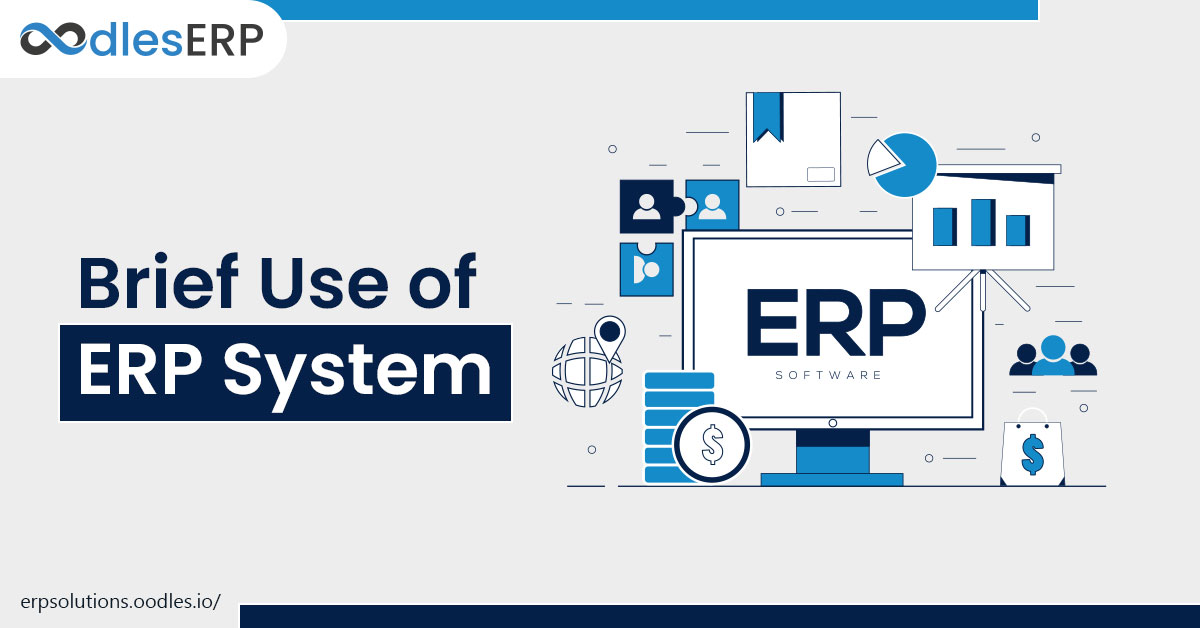Brief Usage of ERP system
Posted By : Inahoto Aye | 26-Feb-2019
ERP

With the worldwide ERP computer code market expected to be valued at $41.69 billion by the year 2020, the impact of ERP systems is clear. While the available number of choices is striking, those who’ve never used computer code may find it tough to understand why ERP is vital to business. However, as economic processes squeeze the marketplace for several industries, it’s essential to hunt out every tool to provide businesses with a competitive edge. For several corporations, it is often achieved through the employment of ERP software. At Oodles, we undertake custom ERP software development to streamline business operations and drive growth and returns.
Functions of ERP systems
1. Improved Inventory management
ERP software consists of applications that act as tools to assist you to keep track of inventory levels at different warehouses, in transportation, and preparing for dispatch.
2. Improved Productivity
Tasks like generating reports, watching inventory levels, timesheet management, and process orders have traditionally taken staff hours to accomplish. ERP automates these tasks.
3. Improved Collaboration
Central data reduces any hiccup or stall as all team members have access to the company-wide information.
4. Simplified Compliance and Risk Management
As corporations expand their business to numerous countries, it is tough to stay in track of all the various laws obligatory on your business. CRM modules in ERP systems take care of that.
5. Connected data and sectors
Enterprise resource designing (ERP) systems are utilized by organizations to manage their business functions inside a centralized and integrated system. They utilize barcoding, RFID tags, and serial numbers to keep tabs on your inventory at each stage throughout the availability chain. Reports generally go along with access levels, making certain only authorized employees see valuable company information.
6. Better Analytics
The information inside an ERP package eliminates redundant tasks like information entry and permits the system to perform advanced calculations within minutes.
7. Cost-saving
Organizations save liquidity with ERP by eliminating the requirement for users to be trained in many systems.
8. Dashboards
With the accuracy provided by ERP, warehouse managers get period information on their inventory to make correct business decisions. Most ERP systems have a customizable dashboard where executives can see reports after they log into the system.
9. Centralized data
ERP stores all entered information into one database, permitting all departments to work with identical data. ERP is usually utilized by corporations operating inside the availability chain to keep track of all the moving components of producing and distribution. Because all of the information is compiled, stored, shared, and accessed through one system, there's no concern on how correct, complete or secure the info files are.
10. Easy Access
From development to accounts owed, employees can access all the required tools from one centralized system. Most ERP systems are equipped with client relationship management (CRM) tool or are simply integrated with one.
11. Robust ERP
As long as your marketer provides robust practicality, the ERP package makes it easier and quicker for your team to come up with numerous reports. An organization wanting to manage its workers, customers, and inventory will all find ERP systems advantageous.
The importance of ERP systems outweighs the initial cost, time, and energy on implementation if you decide on the proper resolution. With careful analysis and thought, you’ll notice ERP software supplies all the advantages making it vital to a corporation. At Oodles, we are an ERP Development Company with the objective of developing robust, intelligent systems that drive profitability and innovation.







